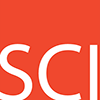Introduction
The Open Knowledge Stakeholder group was heterogeneous, with representation from nonprofit societies, academia, new OA journals, and service providers in most aspects of the scholarly communications lifecycle spectrum. There were many varied activities reported, as well as an array of opinions and comments; however, some main conclusions emerged.
- The ideal scenario for “open” is “free–free open,” i.e. free to publish and free to consume.
- There is no need for one model only; there are many ways to accomplish open.
- This is an exciting, and good, time to experiment.
- The common strategy is to transition into full openness.
- Establishing financial sustainability for a “free–free” environment is the true challenge.
- There is a need to get content to the communities who would benefit most from it.
- Greater uptake in the general community for openness is needed. All stakeholders should communicate without jargon, which is a barrier to understanding.
- In addition to open access, there are concerns related to openness in other parts of the scholarly communication ecosystem that must inform these discussions—transparency, reproducibility, incentives, peer review, etc.—from the conception of a study and its methodology to the raw data and published results.
